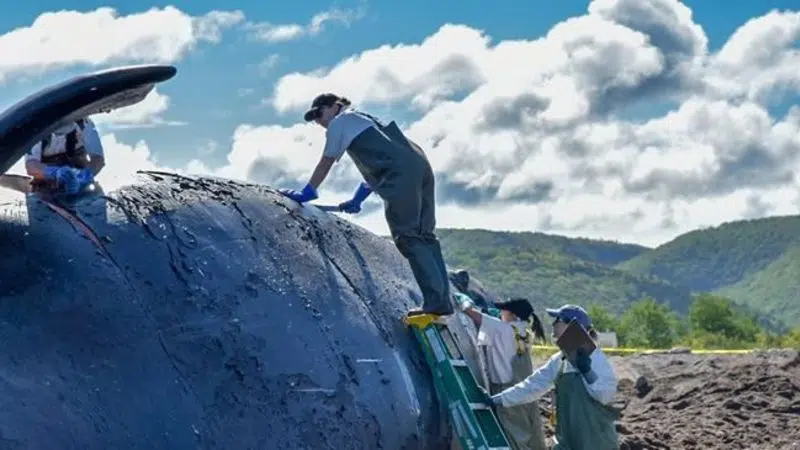
Transport Canada implements speed limits following death of another right whale
HALIFAX — Transport Canada has implemented a speed restriction for vessels in the western part of the Gulf of St. Lawrence following yet another death of the endangered North Atlantic right whale on Wednesday.
Fisheries and Oceans Canada confirmed a right whale was found dead on the shores of Anticosti Island near the Gulf of St. Lawrence, bringing the number of recent deaths up to five.
Scientists are on scene collecting samples for analysis, and working with various partners to assess necropsy options, said a news release from the fisheries department.
“The government of Canada takes this matter very seriously and we understand the significance of this issue,” it said.

